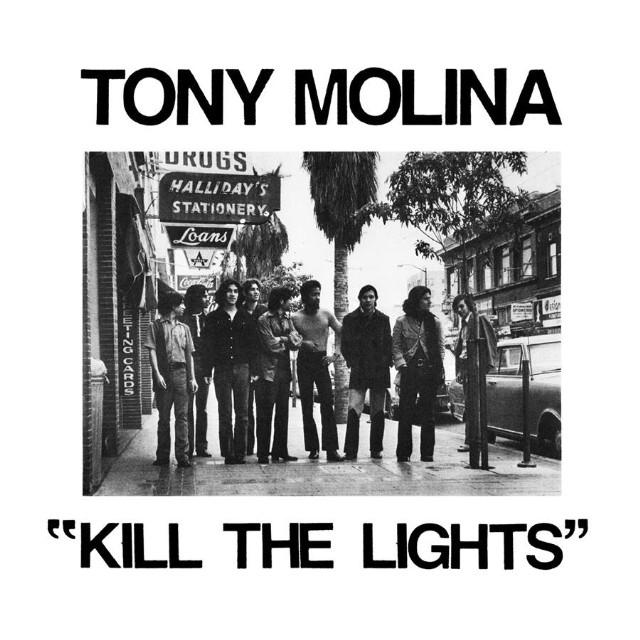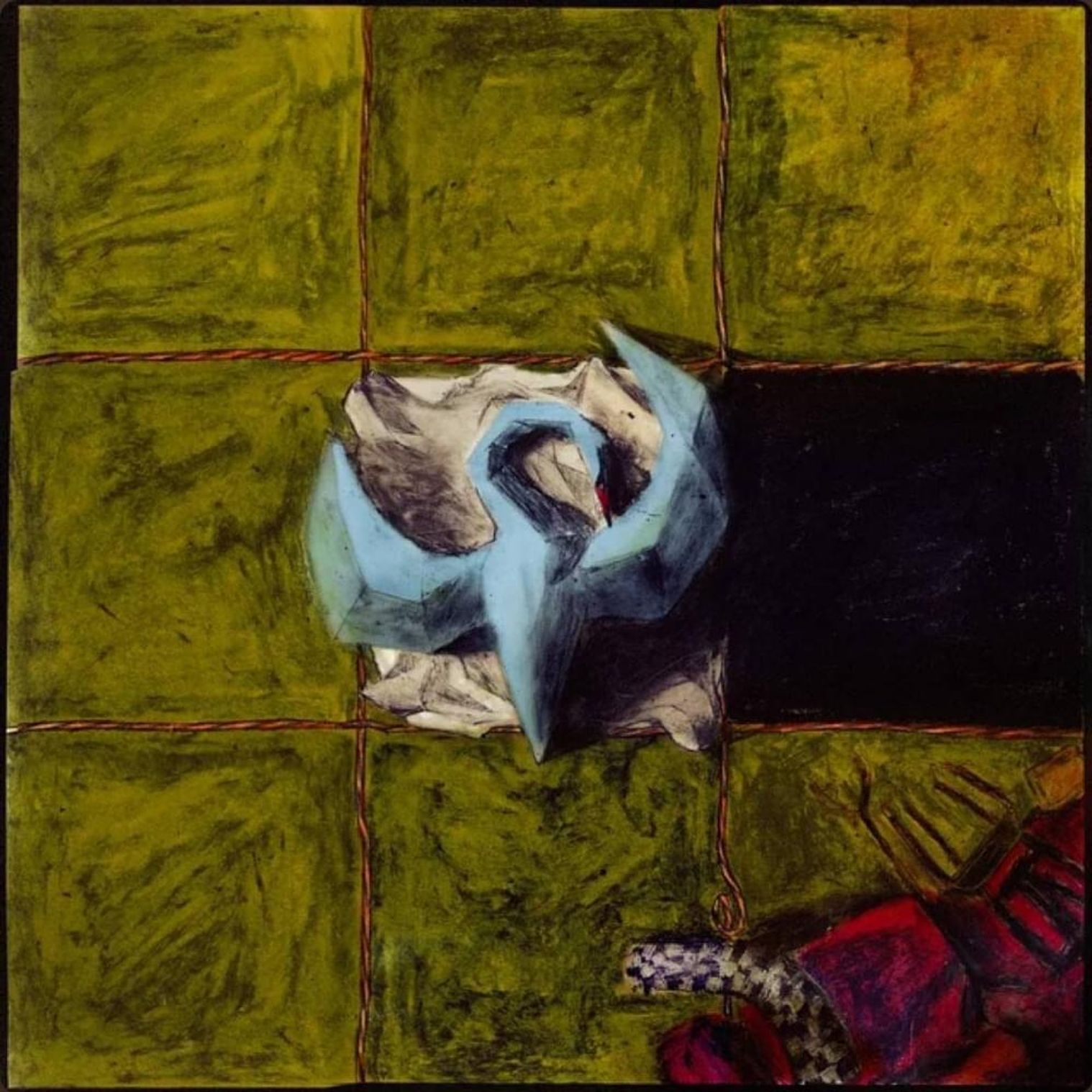Tony Molina writes short songs. That's his thing. That's the first thing anyone ever mentions about him. Dissed And Dismissed, Molina's 2013 debut, jammed 12 songs onto 11 minutes. It was short enough to fit onto a single 7", but Molina still called it an album. Kill The Lights, Molina's relatively expansive new one, inches closer to the 15-minute mark, but we're still talking about a full album that's shorter than a whole lot of Godspeed You! Black Emperor songs.
Molina first started gathering hype on the indie-rock internet in 2014, when Slumberland gave Dissed And Dismissed a wide release. I wrote it off at first, thinking that the whole short-songs thing was a schtick or a gimmick. But it wasn't, and it's still not. It's an organizing principle, a starting point. For Molina, I have to imagine that writing a one-minute song is something like what it must've been like for Alfred Hitchcock to make Rope, an entire thriller that was made to look like a single camera shot. It's a problem, one that he has to get creative to solve.
Of course, plenty of bands write short songs. The Ramones wrote short songs. Guided By Voices, a band who Molina has covered, wrote (and still write) short songs. Hardcore is an entire genre predicated almost entirely on short songs, and it's probably no coincidence that Molina came up playing in Bay Area hardcore songs. But the short songs that Molina writes are different. For the Ramones and Guided By Voices, short songs were sloppy rushes of melody and riffage and feeling. For basically every hardcore band ever, they're furious little tantrums that would lose their excitement if they went on any longer. But Molina's short songs are classical little gems, polished as much as they can be. He's writing pop music, music that's traditionally structured in a certain way. But he doesn't have time for multiple verses or bridges. By and large, he's out after one verse and one chorus. And yet his songs are still complete thoughts, with their own sensibilities. They still get stuck in your head.
What's striking about Kill The Lights is how far Molina has ventured since we met him a few years ago. The Molina of Dissed And Dismissed was making sharp, focused power-pop -- depressive deadpan bursts of Weezer-esque tuneful self-loathing, but with triumphant Thin Lizzy guitar leads. The music wasn't punk, but it at least had some punk DNA in it, so the brevity made a certain amount of sense. But with Kill The Lights, he's switched things up, moving toward starry-eyed folk-rock jangle, the sort of stuff that was a whole lot more common in Molina's San Francisco hometown in the years before he was born than it is now. There is no punk rock whatsoever in Molina's new music, so it's all the more striking to hear him fit these melodic ideas into these quick bursts.
But it still works. Molina was hinting at this sound on last year's Confront The Truth, which I guess counts as an EP even though it was basically the same length as Molina's albums. On Kill The Lights, though, it's fully, movingly realized. Molina sounds just as ferociously bummed as he ever has, but now the music around him is pillowy and reassuring -- the sort of thing that you might be more likely to want to hear when you were feeling down. He still writes riffs, but those riffs are now sparkly acoustic things. Molina is putting echo on them and surrounding them with pianos and organs. He's still recording on what I imagine to be a shoestring budget, but he's finding new ways to stretch it.
"Nothing I Can Say," the album's first track and lead single, is an instructive example. It's built around a central guitar line that just twinkles in that old-timey Roger McGuinn/George Harrison way. Molina gently ruminates on his own personal blues: "There's no such thing as time / And the world seems so unkind / And it's so haaaard to tell you now." Behind him, the backing vocals, which I'm assuming are just Molina's own multi-tracked voice, aaah sympathetically. The song is only 72 seconds long, but in those 72 seconds, you get an experience.
Molina has said that he hates his own voice, something he shares with all music critics who have ever had to transcribe their own interviews. He shouldn't. It's not a versatile or ultra-tuneful voice, but it's expressive. He gets emotions across by underselling them. He's usually singing about being sad, and there's a deadpan flatness that actually serves the songs. He sounds numb, shocked, unable to handle the cruelty and he sees in the world. But because he hates his own voice, Molina also endlessly tinkers with his own records, and that definitely serves them. The songs on Kill The Lights hit like Carver sentences. In their no-fat minimalism, you can hear how many times Molina has obsessively re-written them. Molina once said that he writes short songs because "it's just easier, I guess." Don't believe him. It's never easy to do something this well.
Kill The Lights is out 7/27 on Slumberland.
Other albums of note out this week:
• Thin Lips' incisive, passionate rocker Chosen Family.
• Vacation's choppy, melodic punker Mouth Sounds #2699.
• Daniel Bachman's ominous, experimental acoustic-guitar meditation The Morning Star.
• Ross From Friends' hazy house LP Family Portrait.
• Gia Margaret's lush, ruminative debut There’s Always Glimmer.
• Deaf Wish's feverish punker Lithium Zion.
• Massage's full-length indie-pop debut Oh Boy.
• Oneohtrix Point Never's Station and We'll Take It EPs.
• Underworld and Iggy Pop's collaborative EP Teatime Dub Encounters.
• Thou's Rhea Sylvia EP.
• Beach Rats' Wasted Time EP.






